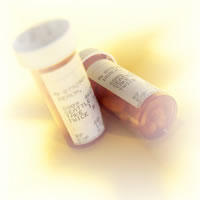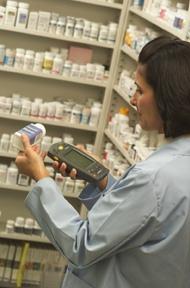|
The best advice is this: Don't take advice and don't give advice. Author Unknown |
|
Seaching medicine on internet

Buying drugs onlineFirst, it's important to carefully consider the source of information and then to discuss the information you find with your health care professional. These questions and answers can help you determine whether the health information you find on the Internet or receive by e-mail from a Web site is likely to be reliable. You have to talk with your doctor and have a physical exam before you get any new medicine for the first time. Use only medicine that has been prescribed by your doctor or another trusted professional. Make sure the site requires a prescription and has a pharmacist available for questions. It is possible to obtain the full benefits of medicinesThe benefits of medicines are the helpful effects you get when you use them, such as lowering blood pressure, curing infection or relieving pain. The risks of medicines are the chances that something unwanted or unexpected could happen to you when you use them. Risks could be less serious things, such as an upset stomach, or more serious things, such as liver damage. Before using any medicine--as with many things that you do every day--you should think through the benefits and the risks in order to make the best choice for you. Important things is tell to your doctor about any allergies or sensitivities that you may have. Tell about anything that could affect your ability to take medicines, such as difficulty swallowing or remembering to take them. You have to always tell your doctor if you are or might become pregnant, or if you are nursing a baby. Always ask questions about any concerns or thoughts that you may have. Before use a medicine make sure you understand the directions; ask your doctor if you have questions or concerns. Always double check that you have the right medicine. Read and follow the directions on the label and the directions from your doctor, pharmacist, or other health care professional. If you stop the medicine or want to use the medicine differently than directed, consult with your health care professional. Ask your doctor always if there are interactions with any other medicines or dietary supplements (including vitamins or herbal supplements), beverages, or foods. Use the same pharmacy for all of your medicine needs, whenever possible. Ask your doctor if there is anything you can do to minimize side effects, such as eating before you take a medicine to reduce stomach upset. You always have to pay attention to how you are feeling; note any changes. Write down the changes so that you can remember to tell your doctor, pharmacist, or other health care professional. What you should know about drug interactionsReading the label every time you use a nonprescription or prescription drug and taking the time to learn about drug interactions may be critical to your health. You can reduce the risk of potentially harmful drug interactions and side effects with a little bit of knowledge and common sense. The most important enzymes in the liver that metabolize drugs are called the cytochrome P450 family of enzymes. These enzymes break down drugs when they pass through the liver or small intestine. A drug may affect these enzymes by inhibiting them, which causes reduced activity of the enzyme and a buildup of the drug in the body. Or drugs may "induce" the enzymes, which causes increased activity of the enzyme and a reduction of the drug in the body. This phase of research in test tubes, known as in vitro studies, allows researchers to perform drug-interaction studies in labs by testing a drug with other drugs that have the same route. This has made the research faster and more accurate. If two drugs go through the same enzyme, the presence of one drug can prevent the metabolism of the other. So this allows you to look at the worst-case scenarios and ask: 'What if we put this drug with that one, knowing that they have the same route?'" Not everything that happens in a test tube will become meaningful in humans, though. Results from these test-tube studies can tell us whether need to do further testing in people to find out if an interaction is clinically significant. Three phases of clinical trials in humans must happen before a drug can be marketed. Phase 1 studies focus on a drug's side effects and how the drug is metabolized and eliminated from the body. Phase 2 studies focus on a drug's effectiveness. And Phase 3 studies gather more information on safety and effectiveness, which includes using the drug in combination with other drugs. Over the last several years, there has been a substantial increase in the number of drug-interaction studies the FDA sees in new drug applications. If drug interactions are significant enough, they can prevent a drug from being approved by the FDA. If the agency determines that known drug interactions can be managed and that a drug's benefits outweigh the risks for the intended population, a drug will be approved. Drug-interaction information then goes into the drug's labeling in the sections on "clinical pharmacology," "precautions," "warnings," "contraindications," and "dosage and administration." Health professionals also use computer systems with drug-interaction screening software, electronic prescribing, and other technology. Mark Langdorf, M.D., chair of the department of emergency medicine at the University of California, Irvine, says, "In a busy emergency room, you have to quickly find out what a patient is taking and how those drugs could interact with other treatments." Drug interactions with other drugs includes both prescription and over-the-counter medicines. Tricyclic antidepressants such as Elavil (amitriptyline) and Pamelor (nortriptyline) can interfere with blood pressure-lowering Catapres (clonidine). Taking the antibiotic Cipro (ciprofloxacin) with antacids lowers Cipro's effectiveness. Some antibiotics, such as rifampin, can lower the effectiveness of birth control pills. Sildenafil, the active ingredient in the erectile dysfunction drug Viagra, should not be taken with nitrates for heart treatment because of the potential for dangerously low blood pressure. Drug interactions with food and beverages, for example, taking quinolone antibiotics such as ciprofloxacin with food and drinks such as colas, coffee, and chocolate that contain caffeine may cause excitability and nervousness. There can be a potentially fatal increase in blood pressure if food containing tyramine is eaten when taking monoamine oxidase inhibitors, drugs that treat mood disorders.
Catalog for advanced search. Explore offers from today active companies.
|
|
